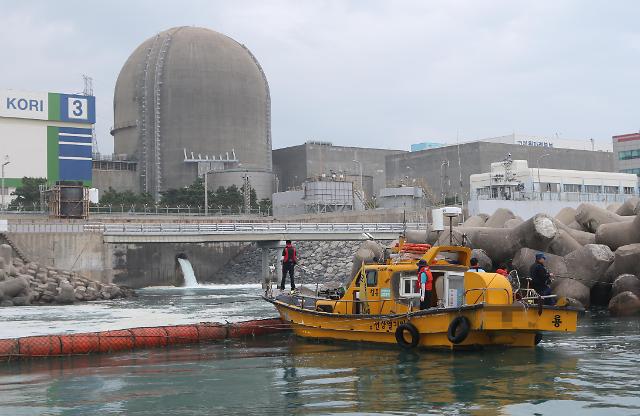
A nuclear power reactor near Busan.[Yonhap News Photo]
The construction of two more nuclear power plants has been approved in South Korea, overriding public concerns over nuclear safety, ageing facilities and sporadic blackouts caused by faulty parts.
The green light came late Thursday when the Nuclear Safety and Security Commission, a state watchdog, allowed the state-run Korea Hydro and Nuclear Power to build two more reactors at South Korea's largest Gori nuclear power complex in Gijang near the southern port city of Busan.
The commission had been reluctant to approve the construction of new reactors as South Korea's nuclear power industry was engulfed in a series of corruption scandals that sparked an investigation of locally products parts. Its last approval came in December 2011, reflecting widespread safety jitters following Japan's 2011 nuclear meltdown in Fukushima.
South Korea currently has 23 nuclear reactors in operation, which meet one-third of the country's power needs. Five more are under construction.
The two reactors to be built anew near Busan will have a power capacity of 1,400 megawatts each. The cost was estimated at 8.6 trillion won (7.48 billion US dollars) and construction will be finished by 2021 and 2022 respectively.
The Fukushima crisis drew unwelcome attention to the use of nuclear energy, but the Seoul has vowed to stick to its nuclear power program as Asia's fourth-largest economy has been plagued by occasional blackouts during peak demand seasons. Nuclear power operators have been under pressure from environmental activists to close old facilities.
South Korea's oldest 580-megawatt reactor near Busan will be shut down permanently in 2017. The reactor started commercial production in 1978. The initial life cycle of the old reactor that started commercial production in 1978 ended in 2007 but the government in 2008 granted it a new lease of life, allowing it to continue operating until 2017.
Aju News Lim Chang-won = cwlim34@ajunews.com


